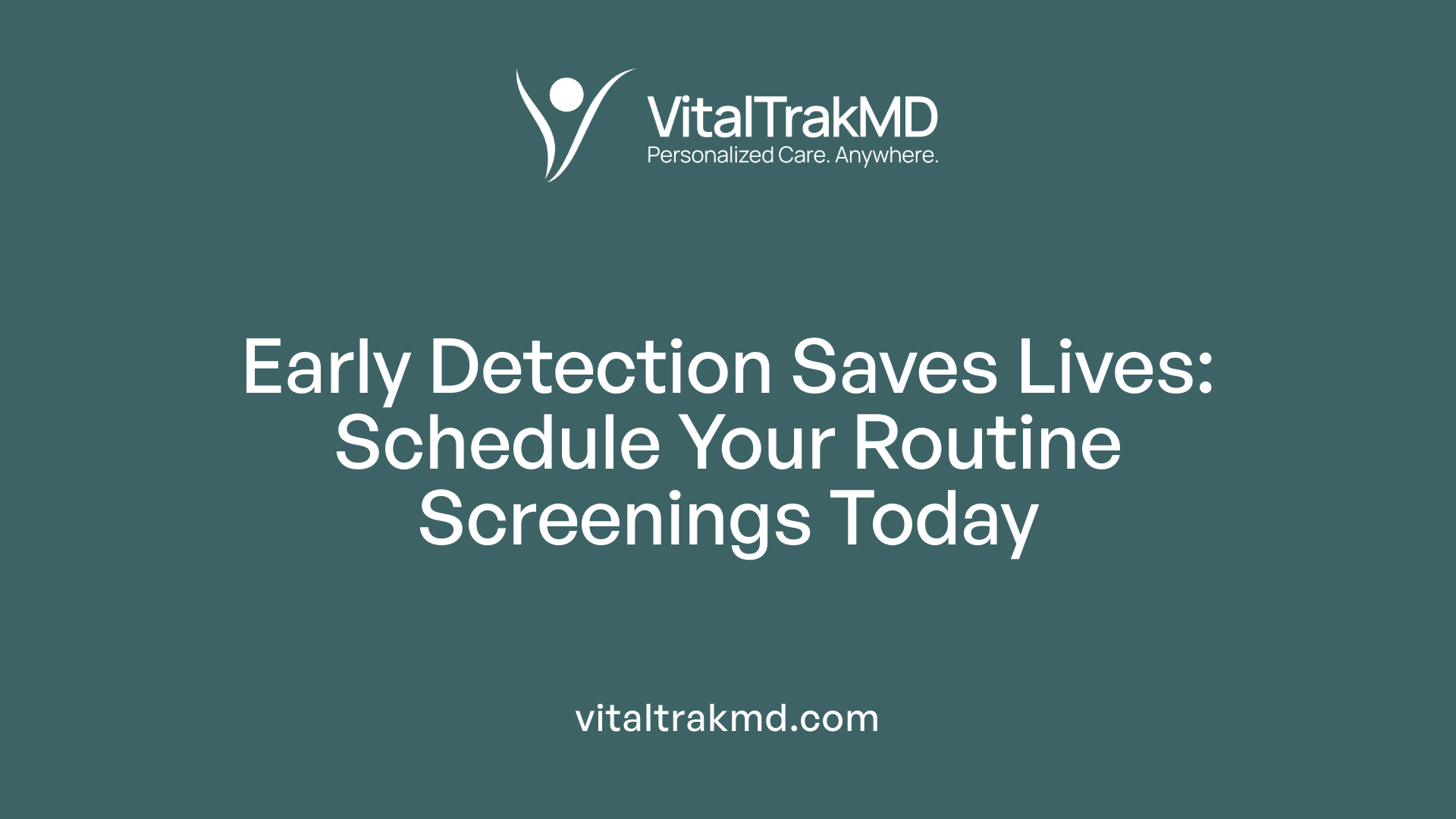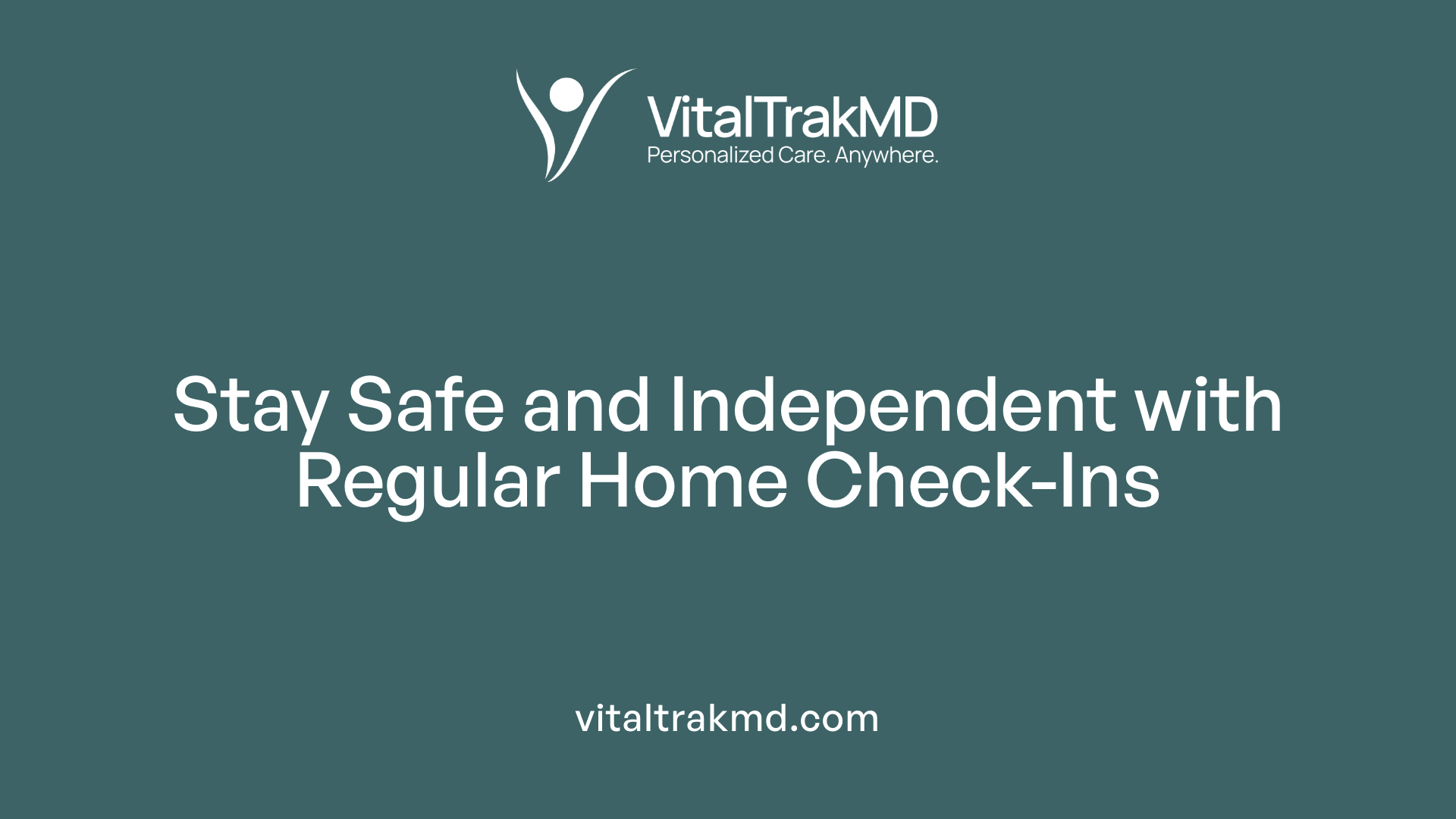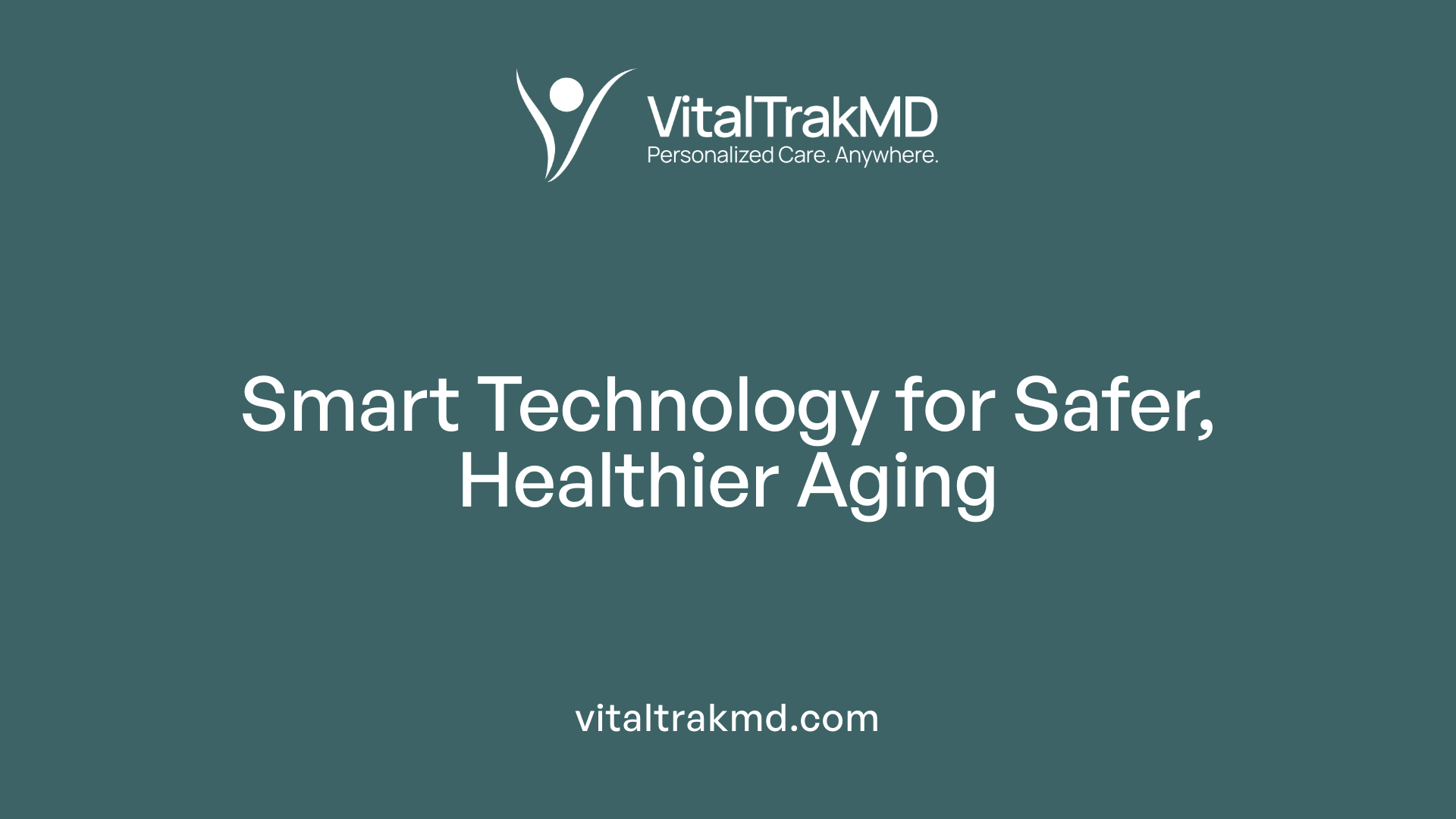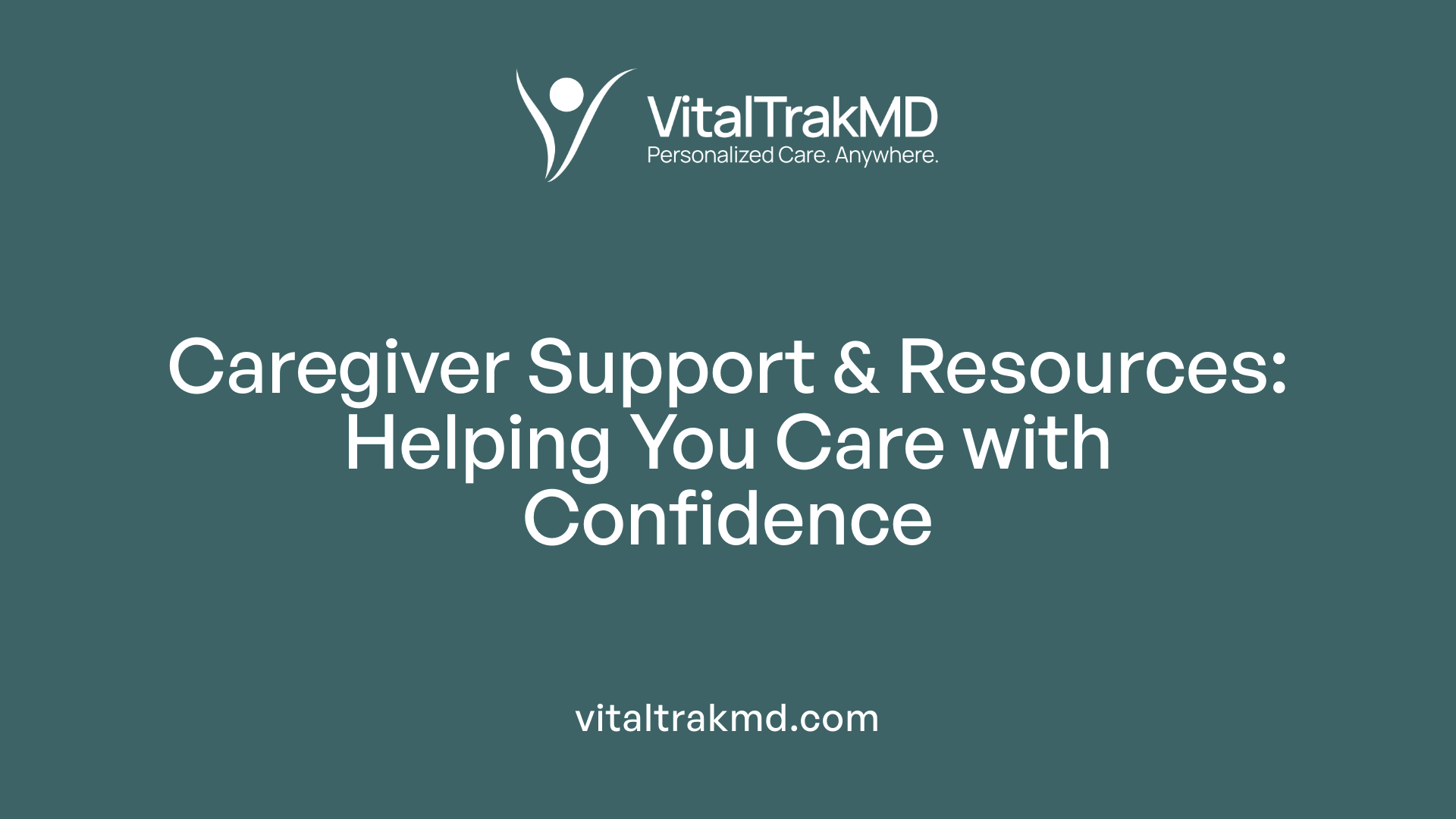Top Benefits of Home Health Check-Ins for Older Adults

A Vital Approach to Senior Care
As the population ages, the importance of maintaining health, safety, and independence for older adults becomes increasingly evident. Home health check-ins play a crucial role in supporting seniors to age comfortably within their own homes. This article explores the top benefits of regular home health evaluations, the role of health monitoring tools, cost savings, and essential resources that empower seniors and their caregivers.
Promoting Preventive Care and Early Detection

Why are annual health check-ups important for older adults?
Regular health check-ups are vital for older adults because they allow for early identification and management of health issues. These visits help detect chronic conditions like high blood pressure, diabetes, and osteoporosis before they develop into more serious problems.
During routine exams, healthcare providers screen for age-related concerns such as cancers, heart disease, and cognitive decline. Early detection through these screenings can significantly improve outcomes and prevent complications.
In addition to physical health assessments, annual check-ups are the best time to update vaccinations, ensuring protection against preventable diseases like influenza, pneumonia, and shingles. Providers also review current medications for interactions and side effects, optimizing treatment plans.
Mental health and lifestyle factors are equally important. Regular visits provide opportunities to discuss mood, anxiety, sleep patterns, diet, and physical activity, addressing issues that may otherwise go unnoticed.
Building a continuous relationship with a primary care provider ensures personalized, proactive care tailored to each individual's evolving health needs. Overall, annual check-ups improve quality of life, reduce hospitalization risk, and contribute to healthier aging.
For more information on why these visits matter, search for "importance of annual health check-ups for seniors."
Enhancing Safety and Supporting Independence at Home

How do home health check-ins support aging in place?
Home health check-ins play a vital role in helping older adults stay in their own homes safely. During these visits, healthcare professionals regularly assess the senior's health status, monitor chronic conditions, and review medications. This ongoing oversight allows for early detection of potential issues, such as falls or illness, and helps prevent hospital visits.
These check-ins are personalized, focusing on the individual's needs, and often include education on managing health conditions. They also help adjust treatments and therapies to improve overall wellbeing. Medicare covers many of these services when certain criteria, like being homebound and requiring skilled care, are met.
By providing consistent professional oversight, home health check-ins foster independence, reduce health risks, and support older adults in enjoying a safe, comfortable, and independent life at home.
The Impact of Health Monitoring Tools in Senior Care

What role do health monitoring tools play in senior care?
Health monitoring devices have become an essential part of caregiving for seniors. They enable continuous observation of vital signs, such as heart rate, blood pressure, and oxygen levels. This constant monitoring helps detect potential health issues early, before symptoms become severe.
These tools also support medication adherence by providing reminders and tracking doses, thus reducing the chances of missed or incorrect medication intake. Fall detection sensors and emergency response systems offer immediate assistance in case of falls or accidents, ensuring swift help and reducing injury severity.
Personalized care is made possible through technology by tailoring health interventions to individual needs. Seniors can receive customized alerts and care plans based on real-time data, enhancing safety and independence.
When integrated with home health services, these tools contribute to better health outcomes. They promote faster recovery after illness or surgery, and help manage chronic conditions more effectively. Importantly, health monitoring fosters regular engagement with healthcare providers, creating a proactive approach to senior wellness.
Overall, the use of health monitoring technology not only improves safety and health management but also supports mental well-being by reducing social isolation and increasing confidence in managing one’s health at home.
Cost-Effectiveness of Home Health Services
Are there cost savings associated with home health services for older adults?
Yes, home health services can lead to significant savings for the healthcare system and families. These services help prevent unnecessary hospitalizations, emergency visits, and long-term nursing home placements, which are expensive and often avoidable. By providing timely and professional care at home, older adults can recover faster from illnesses, manage chronic conditions more effectively, and avoid complications that require costly medical interventions.
Medicare supports many home health services, including skilled nursing, physical, occupational, and speech therapies, when certain criteria are met, such as being homebound and needing skilled care. This coverage ensures that vulnerable seniors receive necessary medical attention without the high costs of hospital stays.
Prevention of complications like infections, falls, or medication errors also contributes to lower healthcare expenses. While Medicare does not typically cover non-medical services like house cleaning or meal preparation unless tied to medical care, the overall savings from reduced hospital admissions and better management of health conditions make home health care a financially efficient choice.
In summary, for older adults, utilizing home health services often results in lower healthcare costs over time, while simultaneously supporting independence and better health outcomes.
Improving Quality of Life and Emotional Well-being
How do home health check-ins impact seniors' safety, independence, and quality of life?
Home health check-ins play a vital role in enhancing the overall well-being of older adults living at home. Regular visits and assessments by healthcare professionals help to monitor vital signs, manage medications, and identify early signs of health issues. This close oversight significantly reduces the risk of falls, infections, and other complications, making homes safer for seniors.
Supporting independence is another crucial benefit. Caregivers assist with daily tasks such as bathing, dressing, and mobility, allowing seniors to retain their autonomy and perform activities they enjoy. This support helps prolong the time they can comfortably and safely stay in their familiar environment.
Furthermore, these services add to the seniors’ quality of life by providing personalized, compassionate care tailored to individual needs. The companionship and social interaction offered during check-ins combat loneliness and feelings of isolation that are common among older adults.
Prompt professional intervention during these visits can accelerate recovery from health setbacks and prevent unnecessary hospital stays. As a result, seniors experience faster healing, fewer complications, and better health outcomes overall.
In essence, home health check-ins foster a safer, more supportive environment that promotes mental and physical health, independence, and emotional well-being—enabling older adults to live more comfortably and confidently at home.
Supporting Family Caregivers and Access to Resources

What support and resources are available through home health services for caregivers and families?
Home health services provide an extensive array of support options designed to assist caregivers and families of older adults. These include tailored caregiving training, education about health conditions, medication management, and practical assistance with daily activities. Caregivers often benefit from respite services, which give a temporary break from their caregiving duties, reducing stress and preventing burnout.
Community programs also play a vital role. Families can access services such as adult day care, transportation assistance, and nutrition programs like Meals on Wheels, which help seniors stay healthy and independent at home. Legal and benefits counseling is available to navigate healthcare options, insurance, and financial planning, ensuring families are well-informed and supported.
Support groups and caregiver training sessions offer emotional guidance and practical tips, fostering a network of community and peer support. Many of these services are covered by Medicare, Medicaid, or private insurance, often at little to no out-of-pocket cost.
Agencies like Aging and Disability Resource Centers and Area Agencies on Aging provide personalized assistance, helping families identify suitable services and resources. They also offer benefits counseling, which can help families maximize available financial aid and support programs.
By leveraging these services, families can improve the quality of care for their loved ones while maintaining their own well-being. Proper support and resources ensure caregivers are equipped, informed, and emotionally resilient as they assist older adults in remaining safely at home.
Resources for caregivers of seniors receiving home health care
For those seeking further assistance, resources such as local community centers, health departments, and specialized caregiver organizations can be invaluable. Searching terms like "resources for caregivers of seniors receiving home health care" online can connect families to workshops, training sessions, and support networks tailored to their needs.
Maximizing Benefits and Planning for Aging in Place
How can older adults determine if they qualify for Medicare-covered home health care?
Older adults can find out if they are eligible for Medicare-supported home health services by consulting with their healthcare provider. To qualify, they must be considered homebound, which means leaving home is difficult and requires significant effort. They should also need intermittent skilled services like nursing, physical therapy, or speech therapy.
Eligibility also depends on the services being prescribed by a licensed healthcare professional who conducts a face-to-face assessment. The care must be provided by a Medicare-certified home health agency, which ensures adherence to quality standards.
A personalized care plan is essential and must be created by the provider, detailing the type and frequency of services. Care plans are reviewed and updated regularly to adapt to changing needs.
It's important to note that Medicare typically covers services that are reasonable and necessary. This includes skilled nursing, therapy, and aides, but not long-term custodial care such as meals or non-skilled personal help.
For a detailed understanding, patients and families can search for information on "eligibility for Medicare home health benefits" to explore specific criteria and steps involved.
By ensuring these conditions are met, older adults can access vital support that promotes recovery at home, maintains independence, and potentially prevents hospital readmissions.
Supporting Seniors in Safe and Healthy Aging
By prioritizing regular home health check-ins, leveraging innovative health monitoring tools, and tapping into available community and Medicare resources, caregivers and families can significantly enhance the safety, independence, and overall quality of life for older adults. These services not only foster better health outcomes but also support the emotional well-being of seniors, making aging in place a realistic and fulfilling goal. Embracing these strategies ensures seniors remain connected, secure, and comfortable within the familiarity of their own homes as they age.
References
- Services for Older Adults Living at Home | National Institute on Aging
- What are the Benefits of Home Health Care - VNA Health Group
- Home Health Services Coverage - Medicare
- Top 5 Reasons to Consider Home Care Assistance for Older Adults
- Benefits of Health Monitoring at Home
- Benefits Of At-Home Nursing and Healthcare for Seniors
- What Are The Benefits Of Home Health Care Services For Elderly ...
- What Home Health Is Covered by Medicare?
- 10 Key Advantages of Home Health Care Services for Seniors
- 10 Benefits of Home Health Care - Amedisys
Recent articles
Want to Feel Better and Live Healthier?
Join hundreds of patients taking control of their health with personalized care that fits their life – not the other way around.
Rated 4.8/5 by 32+ customers







